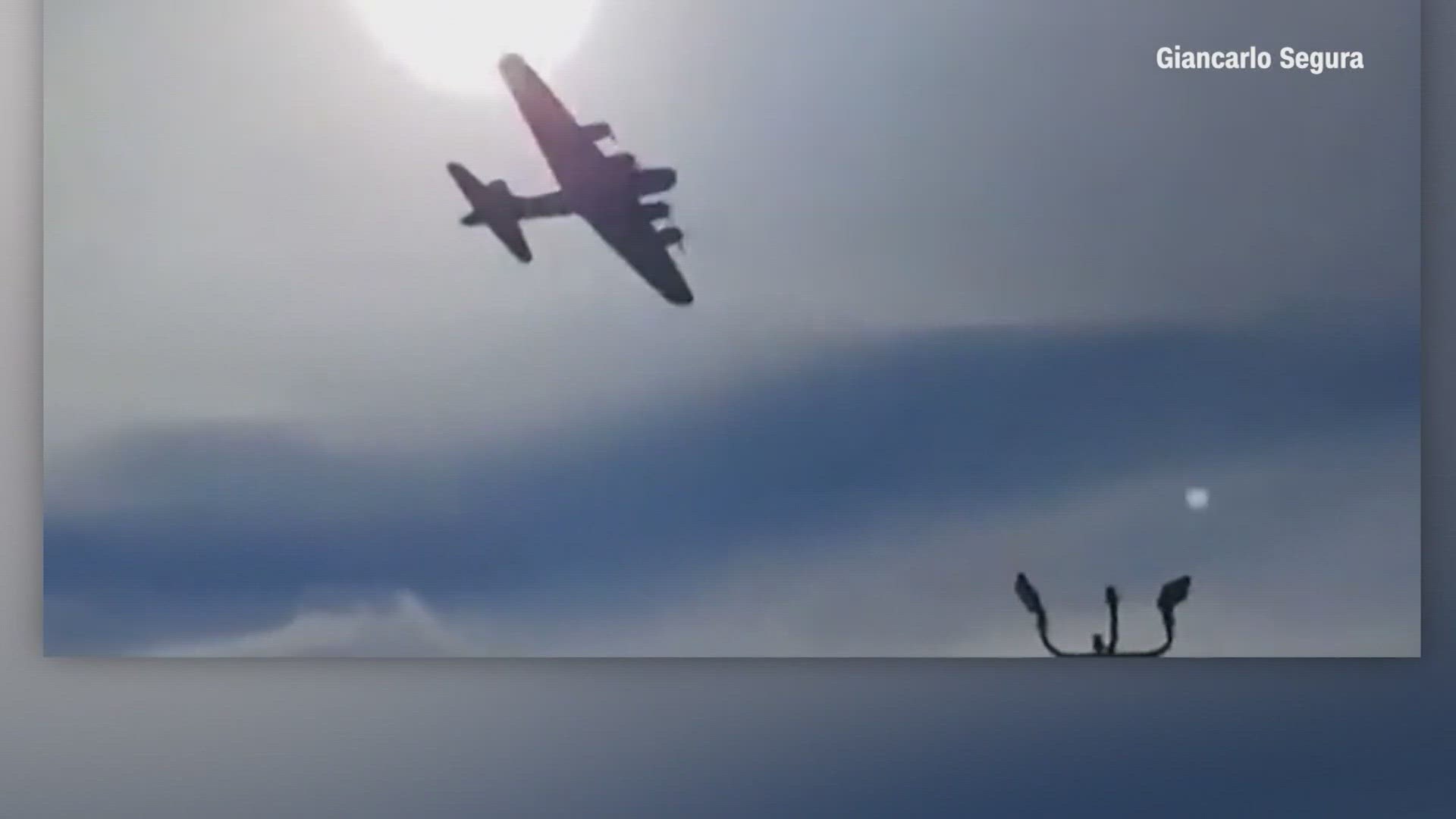DALLAS — The family of one of the pilots killed in the fatal Dallas airshow crash in November 2022 has filed a lawsuit in Dallas County against the event organizers "to help ensure safety for pilots participating in air shows."
Two historic military planes collided and crashed to the ground: a Boeing B-17 Flying Fortress and a Bell P-63 Kingcobra. Six people died in the crash – the pilot, co-pilot and three crewmembers onboard the B-17 and the pilot of the P-63F. The victims were identified as Terry Barker, Maj. Curtis Rowe, Craig Hutain, Len Root, Dan Ragan and Kevin “K5” Michels.
The family of pilot Len Root – wife Angela Root, and daughters Larisa Lichte, Kendra Hockaday, and Rebekah Lowery – filed the lawsuit on Thursday, listing the Commemorative Air Force, the American Airpower Heritage Flying Museum Inc., and the American Airpower Heritage Museum, Inc. as defendants.
The Root family released the following statement after filing the lawsuit:
"Len loved to fly and share his love of aviation with others. He spent many enjoyable hours in the company of other pilots flying vintage aircraft, others who were just as committed to safety as he was. Today, it’s with a heavy heart that we file suit, but it’s something we feel compelled to do to protect other pilots. It’s what Len would want. Thank you for respecting our privacy in this difficult time, and for helping us honor Len’s legacy."
The Commemorative Air Force said in a statement that its attorneys are looking into the petition filed and will respond through appropriate channels.
A preliminary NTSB report of the crash was released at the end of November, which can be read here. NTSB officials said a full investigation could take up to 12-18 months.
The lawsuit filed by Root's family says failures in planning and the coordination of the aircraft positions caused the mid-air collision and the deaths of the pilots and crew. The NTSB preliminary report said altitude maneuvers weren’t discussed before the flight or while the airplanes were in the air.
In November, WFAA spoke with Jon Kettles, an aviation attorney, who said it appeared the bomber was either ahead of its planned path or the P-63 was slow and behind and when the P-63 turned to get into position, it crashed into the bomber which was flying at a similar altitude.
“There was obviously a breakdown in the procedure as well as the execution," said Kettles. “We work in a three-dimensional world. They should’ve had both horizontal separation. In this case they were using distance from the audience, as well as vertical separation and that didn’t happen."
The Commemorative Air Force released the following statement in November:
"We are continuing to work with NTSB and are grateful for their diligence in looking into anything that could have been a factor to cause the accident. Until the NTSB’s final report comes out, we cannot speculate about any cause or causes that may have led to the accident. We will continue to post any updates on our website."
According to research published by the National Institutes of Health, from 1993 to 2013, 174 aircraft crashed (91 fatal and 83 nonfatal) while participating in civil air events in the U.S., resulting in 104 deaths and 44 non-fatal injuries to pilots and passengers. From 1993 to 2013, an estimated average of 270 civil air events took place each year, meaning the estimated industrywide commercial air show crash rate during the 10-year period from 1993 to 2013 was 31 crashes per 1,000 air events. The fatality rate was 18 deaths per 1,000 air events, the NIH study said.
The study also noted 20% of airshow crashes are related to formation flying, making collisions like the one at the Dallas airshow uncommon, Root's lawyers said.
“The incredible flights we witness at air shows are only possible when there is a dedication to safety on the part of show organizers – a dedication that was disregarded at Wings Over Dallas 2022,” said Michael Richardson, an attorney representing the Root family. “Because of this, families are living with the trauma of the decisions of bad actors, the community at large has lost aviation experts and enthusiasts, and irreplaceable WWII-era vintage aircraft were destroyed. To say we’ve lost many different American treasures here is an understatement.”
The family is seeking over $1 million in damages and a jury trial.
More Texas headlines:

